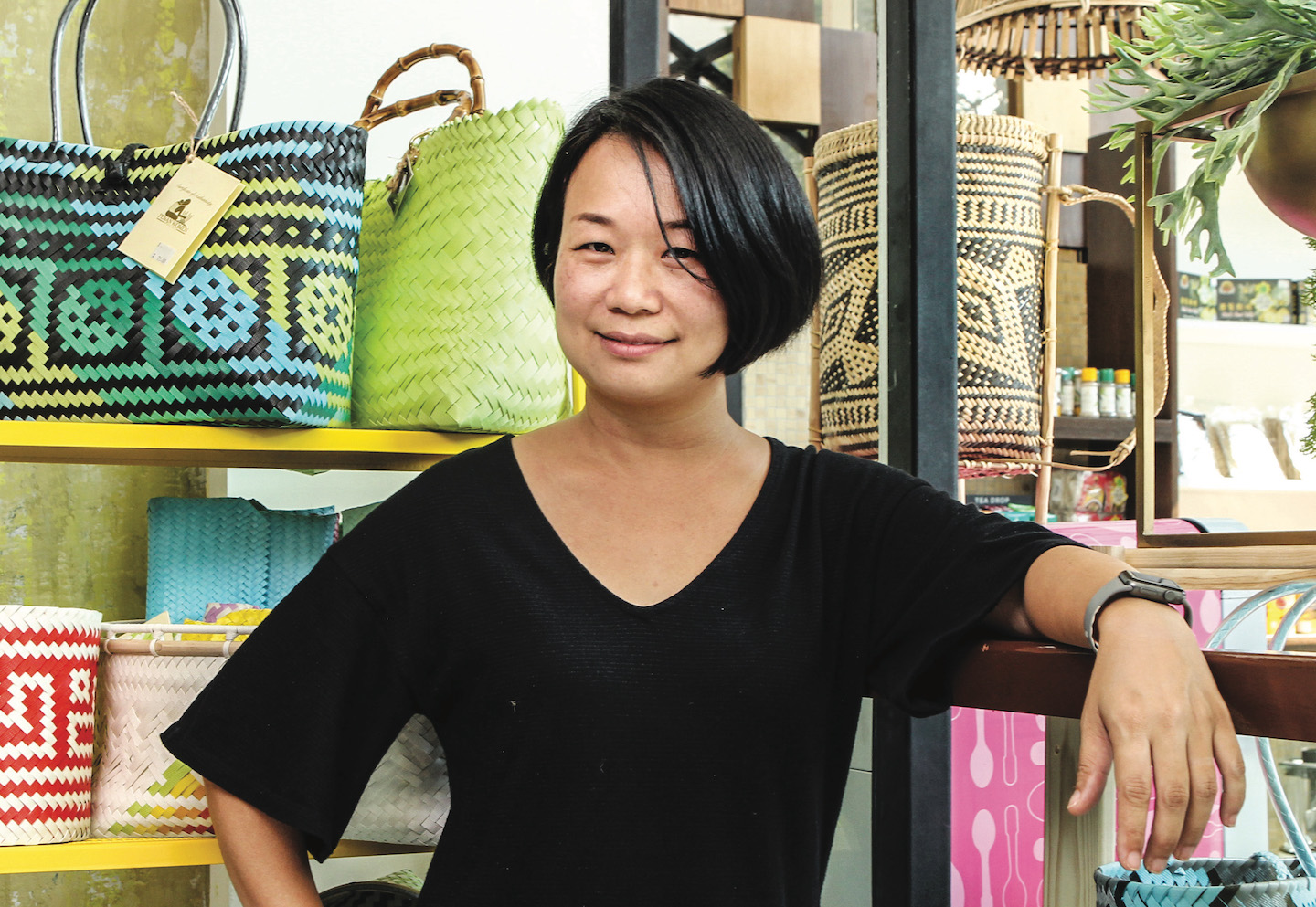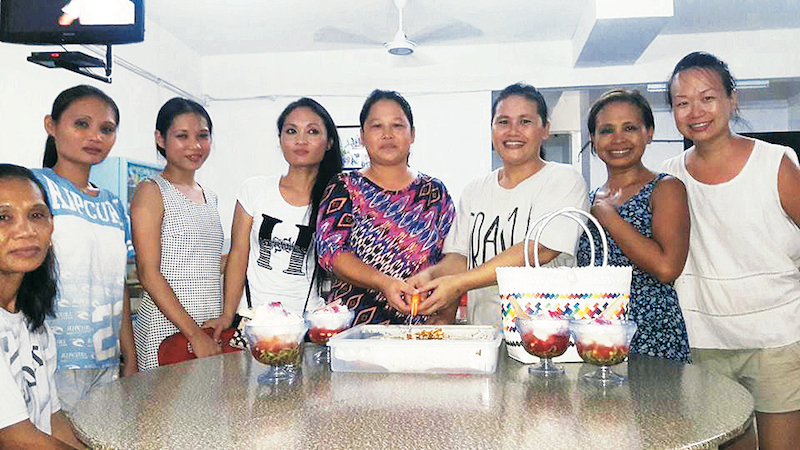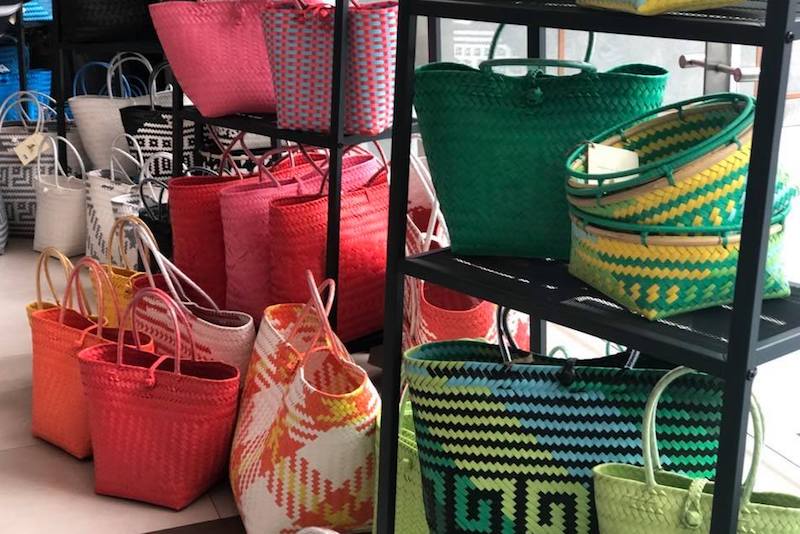
Chairwoman Ann Wong Shih En (Photo: Kenny Yap/The Edge)
The iconic hand-woven bags affectionately referred to as “Penan bags” have become immensely popular in the Klang Valley. Besides aesthetic appeal, the bags have significant value, being lovingly woven by women from Sarawak’s Penan community before they reach consumers via a number of organisations. For social enterprise Penan Women Project, all the proceeds go to the weavers. This creates a sustainable income source for the Penans, who have been facing socioeconomic challenges arising from excessive logging and relocation from their natural environment.
Penan Women Project founder Shida Mojet’s first interaction with the Penan community was in Limbang, where she was distributing clothes and other essentials. Various bad experiences with people who made empty promises had made the community understandably distrustful of outsiders but with constant interaction, Shida gained their trust. “The Penans are a closed group, they don’t talk much … In time, they saw that we did not want anything from them; we just wanted to help them.”
Weaver Christina King from Long Sebayang fondly recalls her meeting with Shida in 2012. The single mother was new to weaving and had completed 20 bags that were not up to par in terms of workmanship. “Shida bought all my bags and offered to teach me to create better products. That really encouraged and motivated me to do better,” she says. Today, King sells her bags directly to craft and souvenir shops.
During our telephone conversation, King says she had just returned from selling some baskets in town and was also excited about another project that had been inspired by Shida. “I bought some clothes from a bundle shop and I am going to distribute them to a village in time for Christmas.”
xtina_copy.jpg

When chairwoman Ann Wong Shih En came on board in 2015, she brought with her designing and branding skills to the table and came up with the name of the project. Having lived in the US for 10 years, she wanted to come back to her hometown and do something for the people of Sarawak. This led to an eight-hour coffee session with Shida, who had been working with the Penan community for close to a decade. Wong later went on to lead the entire operation after Shida left the country.
Prior to Penan Women Project, Shida had founded a similar organisation that aided the Penan community — Helping Hands Penan. Even before a complete structure was formed, she had begun selling the woven products in ad hoc locations and to family and friends. It was during those initial stages that she, together with the weavers, tirelessly worked to design and conceptualise the Penan bag. A buddy system paired better weavers with weaker ones and the former were rewarded with prizes for their guidance. The community, in return, welcomed Shida into their lives, opening their homes to her when she needed to stay on to work on the bags as travelling to the villages took hours in an off-road vehicle.
The main challenge faced by the Penan community, traditionally nomadic hunter-gatherers, is the gradual encroachment of their homes. “The settlement areas are not ideal for them. They have no education and cannot find jobs in town,” Wong says, explaining that moving to town is not an option for them either.
“This is a new world for them … If the forest were still intact and they did not have to send their children to school or seek medical treatment, they would still be living according to their old ways,” says Shida. Wong adds that “the income [from the weaving] allows them to send their children to school and seek medical treatment”. Obtaining an education is not without challenges due to the sheer distances and boarding school is not a
viable option. The children used to ride in logging lorries but incidents of rape rendered this option too dangerous.
penan_bags.jpg

“It is a pity because without a proper source of income, they sometimes had to resort to begging for food. Nobody [in town] wanted to talk to them or sit at the same table. They were cast aside but a headman told me that other tribes now sit with them,” Shida recounts.
Today, Penan Women Project has 60 weavers from Long Nen, Long Kevok and Long Latek, while its product offerings include a wide range of covetable accessories such as bags, clutches, baskets and trinket holders. All the products that we see today at bazaars and fairs have travelled a great distance — beginning with the dropping off of the polypropylene material after an eight-hour drive from Ulu Baram and a return trip as finished products that are then sent all over Malaysia. The weavers are paid upfront.
Shida now lives in the Netherlands, but remains connected to the project that Wong drives on the ground alongside the weavers. “If you set out to do something, you have to do it with your heart,” she says. And there is no mistaking the heart that goes into Penan Women Project and everything it does.
This article first appeared on Dec 10, 2018 in The Edge Malaysia.


